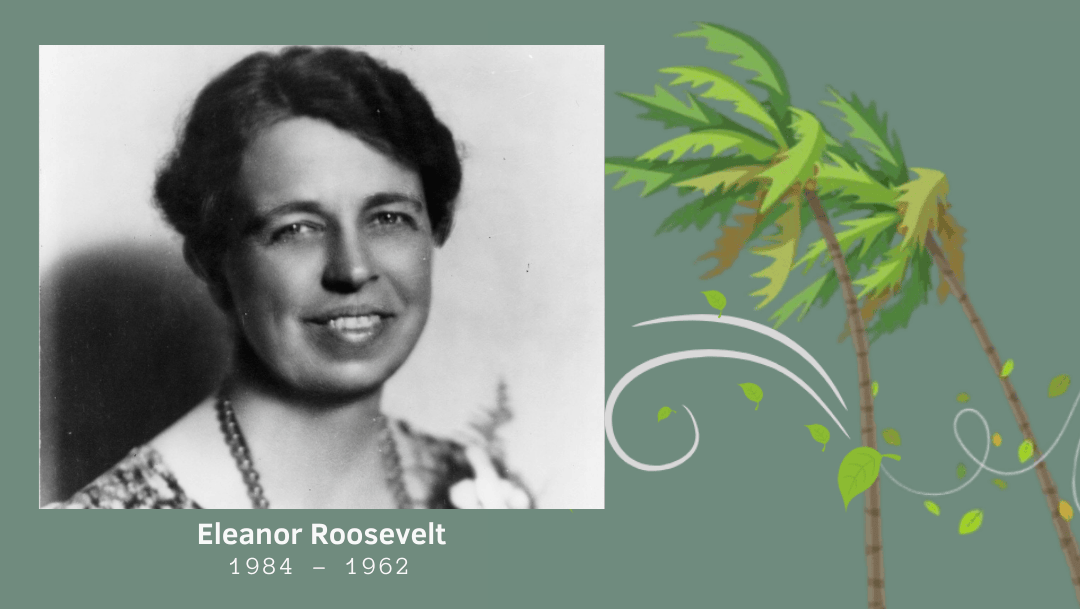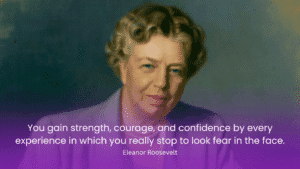
Women Who Overcame Eleanor Roosevelt
In this new article of Women Who Overcame, we feature Eleanor Roosevelt: A Remarkable Woman in the Shadow of a Famous Family.
A Complex Legacy Behind a Familiar Name
Eleanor Roosevelt, a name synonymous with progressive ideals and tireless advocacy, remains one of the most influential figures of the 20th century. Her journey, however, was not a straightforward path paved by her privileged upbringing. Instead, it was a complex tapestry woven with threads of immense personal hardship that ultimately forged her extraordinary character and unwavering commitment to social justice.
An Illusion of Comfort
Born into a prominent New York society family in 1884, Anna Eleanor Roosevelt enjoyed a childhood of relative comfort and social standing. Her father, Elliott Bulloch Roosevelt, was the younger brother of future President Theodore Roosevelt, and her mother, Anna Rebecca Hall, belonged to another established New York family. Yet, beneath the veneer of affluence lay a landscape of emotional neglect and early tragedy. Her mother, a distant and critical figure, died when Eleanor was only eight years old. Her beloved father, to whom she was deeply attached, struggled with alcoholism and spent significant time away before his untimely death just two years later. This early loss and the subsequent upbringing by her strict and emotionally reserved maternal grandmother instilled in young Eleanor a profound sense of loneliness and a yearning for connection.
Transformation Through Education
Despite her initial shyness and self-doubt, Eleanor’s education at Allenswood Boarding School in England proved transformative. There, under the guidance of the progressive headmistress Marie Souvestre, she blossomed intellectually and developed a strong sense of social responsibility. Souvestre’s influence instilled in Eleanor a lifelong commitment to education, social reform, and independent thought.
Marriage and Early Challenges
Upon her return to New York, Eleanor re-entered the world of elite society. In 1905, she married her fifth cousin, Franklin Delano Roosevelt, a rising star in New York politics. While the early years of their marriage brought the joy of six children, they were also marked by significant challenges. Franklin’s ambitious political career often left Eleanor feeling secondary, and his infidelities inflicted deep emotional wounds. The most significant of these, the discovery of Franklin’s affair with Lucy Mercer, nearly shattered their marriage. Though they remained together for political reasons and a burgeoning partnership, this betrayal profoundly impacted Eleanor, pushing her further towards finding her own independent purpose.
Rising Through Adversity
The polio diagnosis that struck Franklin in 1921 proved to be another pivotal moment. While Eleanor tirelessly nursed him back to health and became his crucial support system, she also began to carve out her own public role. As Franklin’s political career progressed, culminating in his presidency in 1933, Eleanor refused to remain a traditional first lady. She actively engaged in the pressing issues of the time, travelling the country, meeting with ordinary citizens, and becoming a powerful voice for the marginalised and disenfranchised during the Great Depression.
A First Lady of Principle
Eleanor’s outspoken advocacy for civil rights, workers’ rights, and women’s rights often put her at odds with conservative elements and even members of her husband’s administration. She used her platform to champion the cause of African Americans, famously resigning from the Daughters of the American Revolution when they refused to allow Marian Anderson, a Black opera singer, to perform in their hall. Her unwavering commitment to inclusivity and social justice broke new ground for the role of First Lady and left an enduring legacy.
A Legacy of Service and Strength
Throughout her life, Eleanor Roosevelt transformed personal hardship into profound public service. The loneliness of her childhood, the complexities of her marriage, and the challenges she faced as a woman in a male-dominated world fueled her empathy and determination. She emerged not just as the wife of a president, but as a force in her own right – a tireless advocate for human rights and a beacon of hope for those whose voices were often unheard. Her life stands as a testament to the power of resilience and the transformative potential of turning personal struggles into a powerful catalyst for positive change.







This Post Has 0 Comments